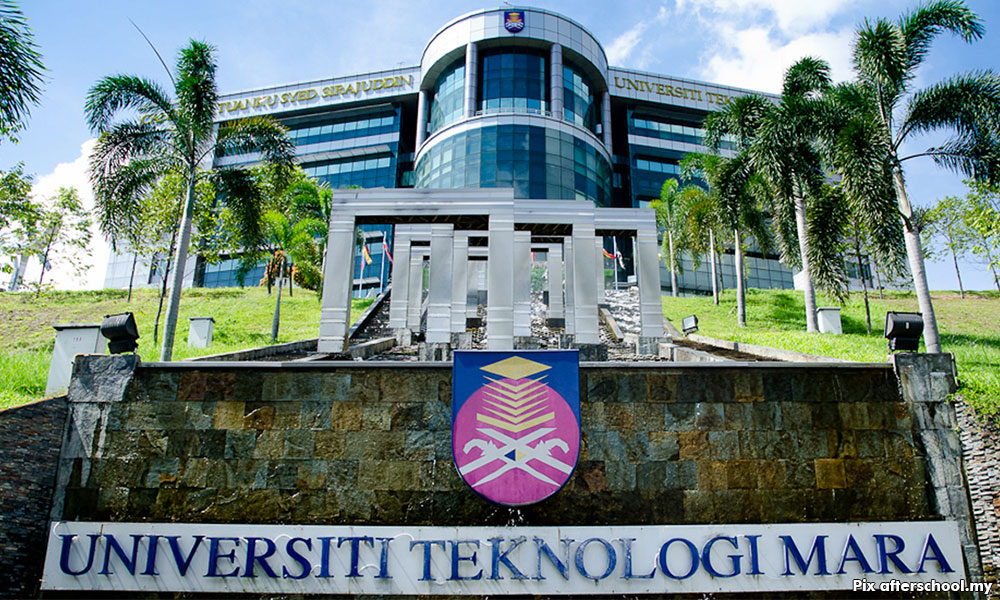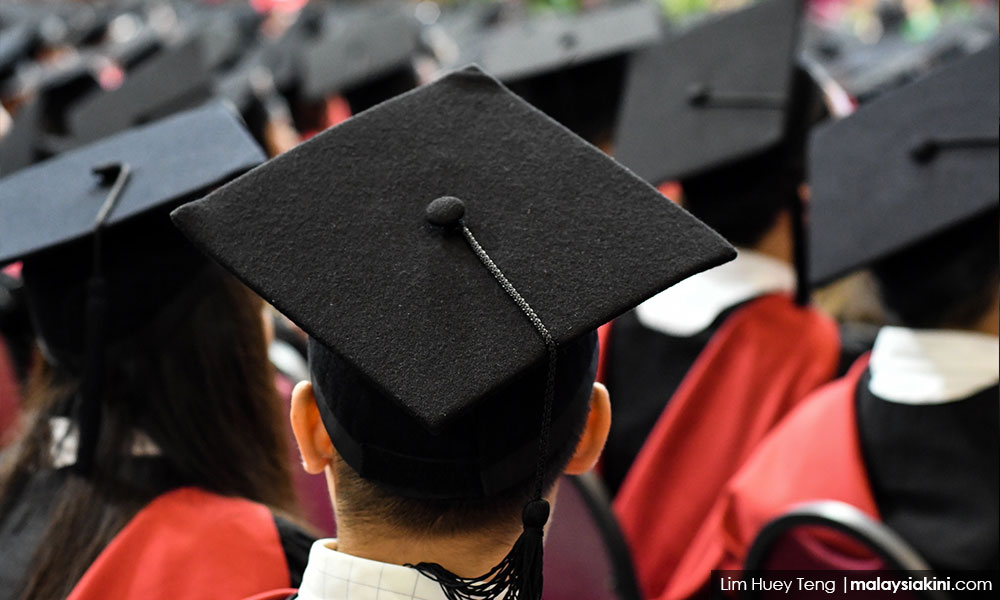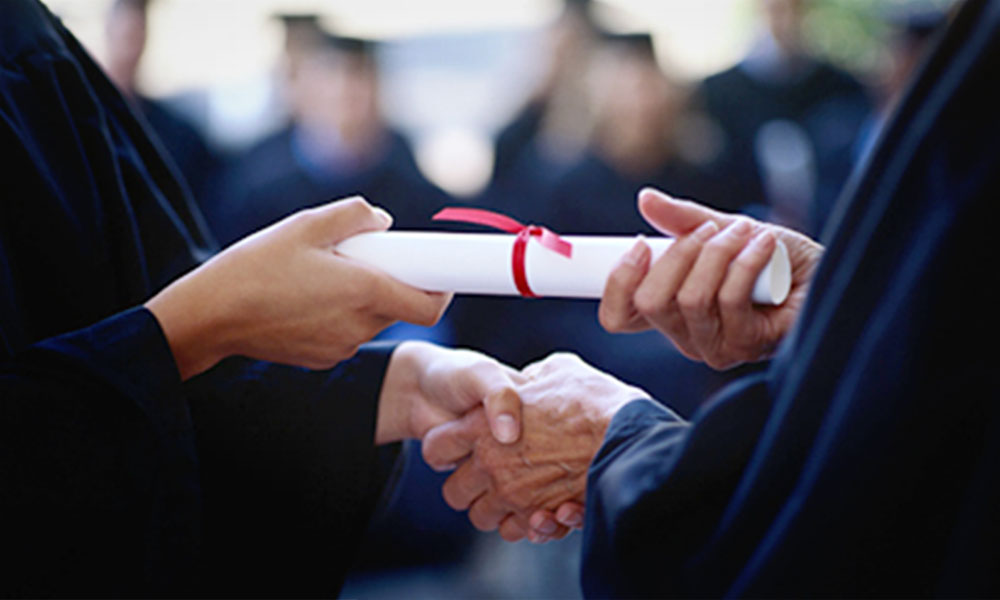
Structural reforms in the higher education sector that we had hoped for under Pakatan Harapan are now dust in the wind.
The situational ethics of the education minister and the prime minister in justifying the "backdoor" matriculation of bumiputera students for public university places is politically astute, but morally wrong.
Increasing the intake of non-Malay students to 4,000 does not address the 90:10 racial quota in the matriculation admission. It is certainly not a “win-win” solution. And it is not a “gift” to non-Bumiputera students. It is a false equivalence.
Better qualified non-Malay students are again left to pick the crumbs from the matriculation admission quota, regardless of the expanded overall intake, which risks further lowering the bar in the pre-university education standards.
Admission into matriculation belies the more than six decades of systemic discrimination in our higher education sector. Any which way we take in lobbying for fair opportunities in the university admission, we lose to partisan politics and racist reactions from the Ketuanan Melayu demagogues of the Perkasa and UiTM alumni set.
The narrow vision in keeping the institution exclusively Malay, based on Article 153 of the Federal Constitution, is blind to the fact that continuing the racial isolation of UiTM will not serve its graduates well in the workforce.

A field study on the perception of racial identity and labour market outcomes in 2013 showed employers were more inclined to select non-Malay candidates.
One of the study’s tentative conclusions said: “Perceptions of Malay graduates are evidently unfavourable, posing deep questions on the quality of education, on affirmative action outcomes and ramifications (both real and perceived), and on deficiencies in inter-group social interaction that may allow such perceptions to become entrenched.”
As long as UiTM is dead to racial integration, such stereotyped perceptions will persist.
Universities are places where critical minds are honed, where students mix and integrate, where cultural and gender differences are valued, freedom of expression respected and controversial issues reasoned and rationalised.
Being sanctioned by law and national policy, the racial isolation of UiTM merely serves to perpetuate the bumiputera students’ dependency on government assistance, which arguably weakens the graduates’ grit and motivation to seek employment beyond, for instance, government-linked companies and the civil service.
Proposals to rid the higher education system of racial exclusivism are not new. National Union of Teaching Profession (NUTP) president Tengku Habsah Tengku Petera attempted it in June 2002, which was supported in Parliament by DAP deader, Lim Kit Siang.
He noted in a media statement that “the national educational system should move in line with changing times and economic development to ensure that students, particularly bumiputeras, aere able to compete”.

Likewise, founding director of ITM, Arshad Ayub (above), said in January that it was time UiTM opened its doors to non-Malay students, at least at the Master’s level.
His observation of a closed UiTM campus is of note: “If the students are 100 percent bumiputeras and lecturers are 95 percent bumiputeras, how will they get exposure to other cultures and ways of thinking, apart from watching TV and reading books?”
Indeed, racial discrimination in the university admission process has led to the dire lack of cross-cultural engagement among our university students. Visit any campus grounds today and you see students, including staff, cloistered in distinct ethnic groups. The more things change, the more they remain the same.
In the mid-80s, I was among the very few non-Malay academicians at ITM-Shah Alam, as it was known then. My tenure was satisfying primarily due to my personal engagements with the journalism students. I recall one of my students asked why I was teaching at the institution when it was clear the career path for a non-Malay lecturer was somewhat flat.
My students, understandably, deemed ITM as an exclusive training ground for bumiputeras. Even though they acknowledged the contributions of non-Malay academic staff, they knew our prospects of promotion were limited. Such was, and still is, the reality of the student-staff metrics in UiTM today.
(I was once put on notice by the ITM Administration for deliberating on the pros and cons of the NEP in one of my journalism classes.)

Many of my former students are now influential practitioners in the media industry. I had hoped that they would make a difference, however slight, in shaping the media narratives on racial discrimination in the higher education sector.
Unfortunately, many are in the system and have become part of the problem, as indicated in a UiTM Alumni petition initiated in May last year by an Utusan Malaysiaassistant chief editor.
Meanwhile, there is more to lose by keeping UiTM exclusively Malay. It perpetuates the Ketuanan Melayu mindset. It reinforces covert racism. It impedes intercultural literacy and deprives tertiary students of the social and cognitive benefits inherent in an open critical learning environment.
As with the matriculation system, the Pakatan Harapan leadership, in the context of its reformist manifesto, should look into UiTM allocating at least 10 percent of its admission to non-Malay students, besides reviewing its employment and promotion of non-Malay academic staff.
The only way for an institution of higher learning to move with the times is forward, not back. The relational, cultural and intellectual benefits that students and faculty staff could gain from a vibrant, ethnically mixed university learning environment are self-evident.
ERIC LOO is a senior fellow (journalism) at the School of the Arts, English & Media, Faculty of Law, Humanities & Arts, University of Wollongong. He is also the founding editor of Asia Pacific Media Educator. - Mkini


No comments:
Post a Comment
Note: Only a member of this blog may post a comment.